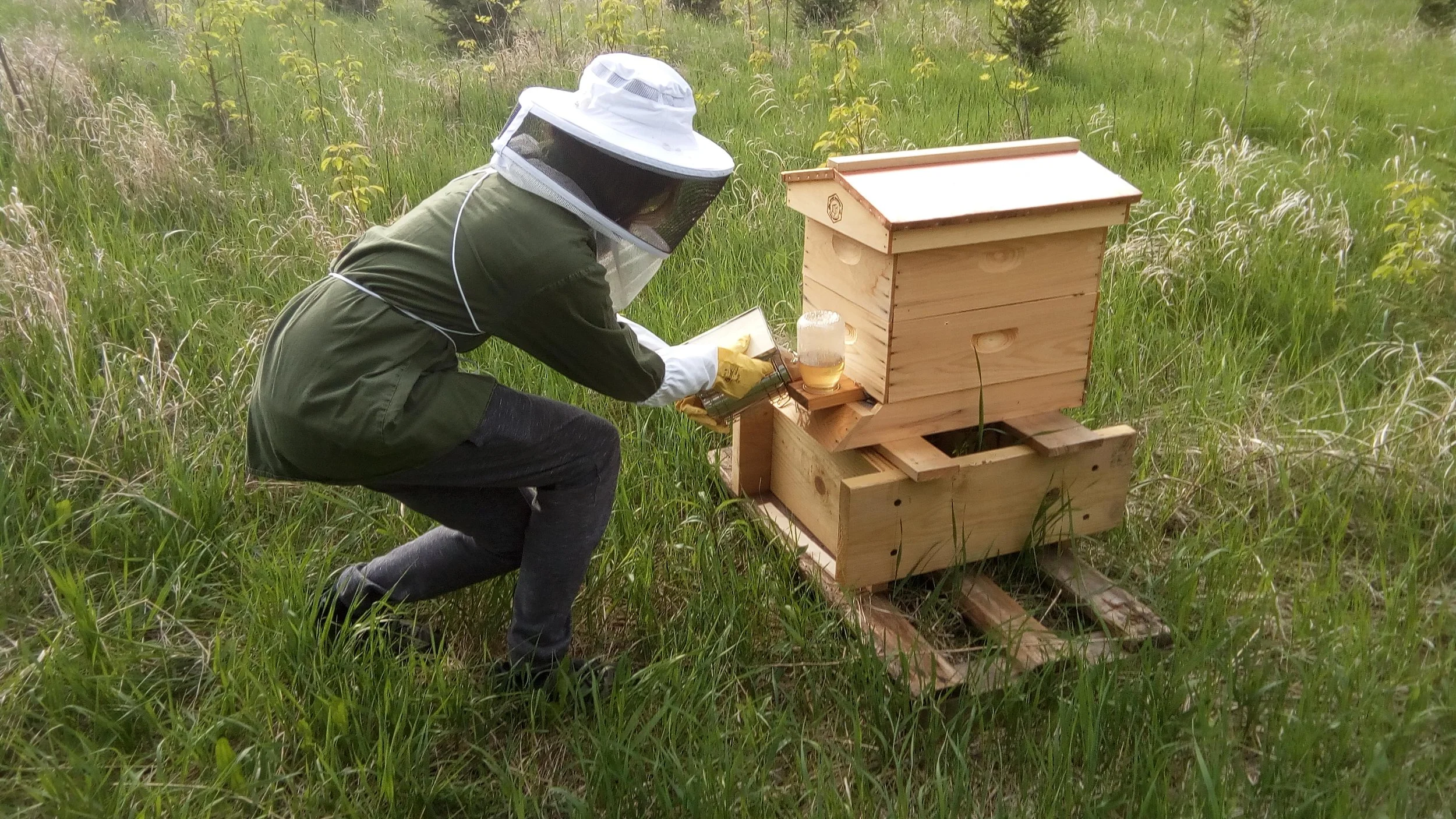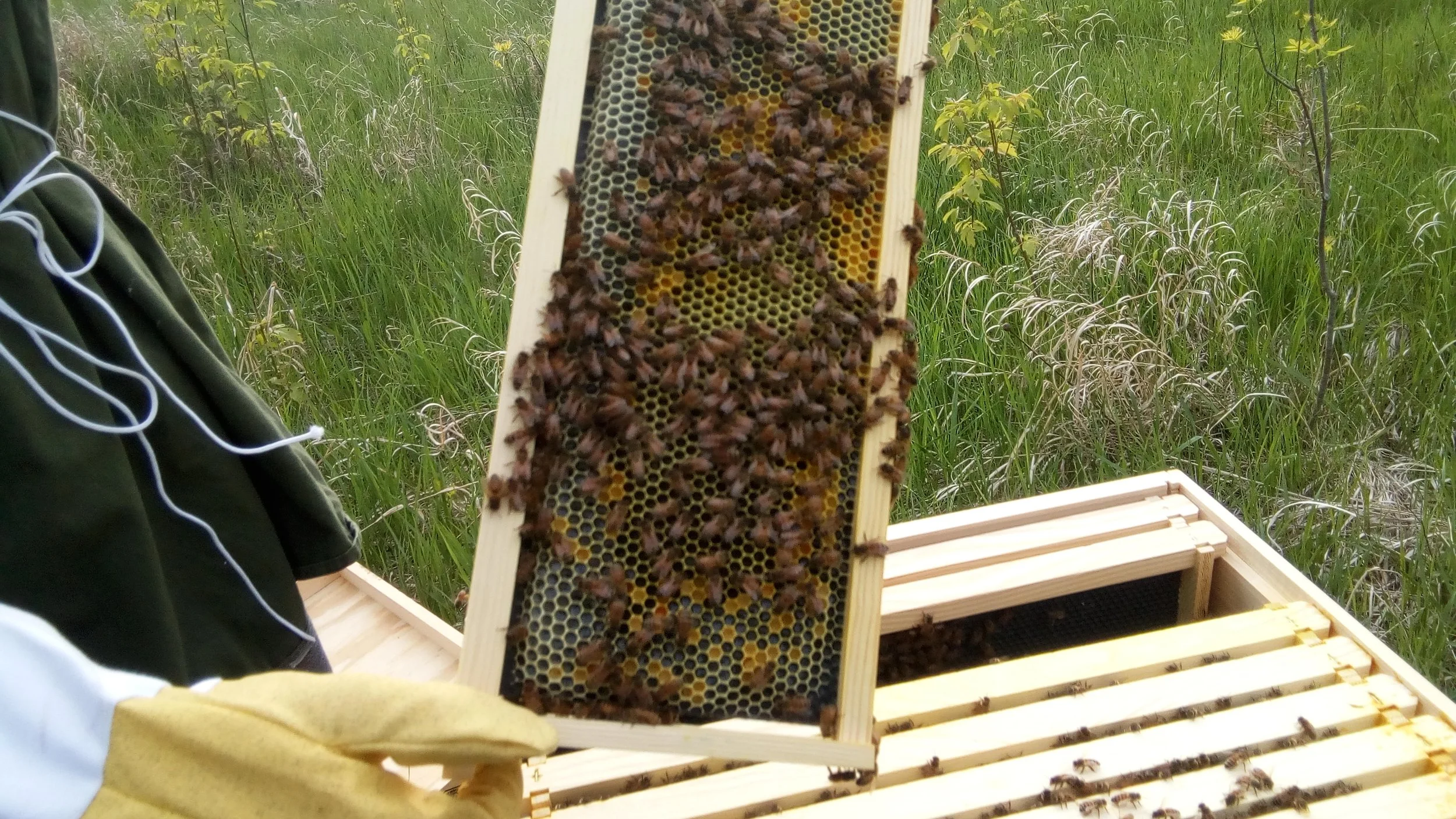We have our own honey bee hives on the farm. We originally decided to raise bees on a small scale to aid in pollinating our vegetables and fruits, and to also help the environment. We are all aware of the decline in honey bee populations world-wide. At Noel Farms, we wanted to play a small part in helping to protect the honey bee population.
While we originally raised bees for help with pollination, our bees have paid us back with a bounty of honey.
The photos show us setting up the hive in the spring and checking the progress of our bees as they begin to produce wax and honey.
In 2024, we began participating in the Sheboygan County Beekeepers Association. It allows us to network with and learn from master beekeepers in the area. We hope to improve our odds of overwintering our hives as a result of the useful information provided. I strongly recommend anyone interested in beekeeping to learn more about this very helpful organization: https://sheboyganbees.org/scba/about/
Update—May 25, 2025: A big surprise today! One of the hives swarmed. It was unexpected and fascinating to watch. I have been raising bees for several years but have never had a hive swarm before.
Swarms occur when the size of the colony exceeds the number of bees that can be housed within a hive body. The colony splits, with the original queen moving with half the bees to a new location to establish a new colony. Left behind are half the worker bees and several queen bee egg cells (which should hatch to produce a new queen for the existing colony).
I was out in the garden planting tomatoes and heard a loud buzzing sound. My tomato patch is about 100 feet from my hives. I saw a huge cloud of bees emerge from one of the hives and fly together as a group to the top of a large box elder tree, where they formed a large black clump. The clump of bees consists of the queen surrounded by hundreds of worker bees who cluster around her to protect her. The swarm sent out scout bees to find a favorable location for the new colony. I tried to lure the swarm into a nuc box (a temporary hive with frames) using lemon grass essential oil as an attractant, but to no avail. [Thank you to the members of the Sheboygan County Beekeepers Association for the advice given in trying to recapture the swarm. ] The next day, the swarm left the top of the tree and flew to a property several farms over. I don’t know where they ended up, but God Speed to them…. Had I been successful in luring them into the nuc box, I could have established another hive with them.
As it stands, I will continue to nurture the remaining bees and monitor the development of the new queen, as she takes over the hive. My other hive remains at status quo, under the direction of its original queen. While I am disappointed that I was unable to capture the swarm successfully, I should still be able to produce honey with the remaining colonies I have. And, the fact that the hive swarmed at all means that the bees were healthy and able to reproduce at a rapid enough pace to require the colony to split. All in all, a fascinating experience and the reason why I love raising bees and immersing myself in farm life. Posted at the right are two videos I took of the event. You can tell by my voice how excited I was
Bee Swarm—Part 1. May 25, 2025
Bee Swarm—Part 2. May 25, 2025

